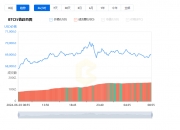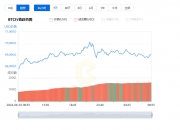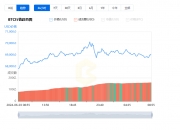比特币作为一种数字货币,自2009年诞生以来,收到了全球范围内的热烈关注,中国也不例外。但是,由于缺乏有效的监管措施,以及其风险较高的特性,比特币交易在中国并没有得到官方认可。
Bitcoin, a digital currency, has received global attention since its birth in 2009, and China is no exception. However, in the absence of effective regulatory measures, and its high-risk characteristics, Bitcoin transactions have not been officially recognized in China.
2013年12月,中国人民银行等七部委联合发布了《中国人民银行等七部委关于防范比特币风险的通知》,明确指出比特币不是法币,并警告公众风险,并禁止银行与金融机构参与比特币交易,这也是目前中国的法律规定。
In December 2013, seven ministries, including the People's Bank of China, jointly issued the Circular of seven ministries, including the People's Bank of China, on Protection against Bitcoin Risk, which clearly states that Bitcoin is not French currency and warns the public of risks and prohibits banks and financial institutions from engaging in Bitcoin transactions, as is currently provided for by Chinese law.
虽然比特币交易在中国没有得到合法的认可,但是违法交易必将受到惩罚。根据《中华人民共和国刑法》第二百八十三条规定,非法发行货币的行为,可能会被判处三年以上的有期徒刑、拘役或者管制,情节严重的,可能会被判处五年以上的有期徒刑。
Although bitcoin transactions are not legally sanctioned in China, illegal transactions are punishable. According to article 283 of the Criminal Code of the People’s Republic of China, illegal distribution of currency can be punishable by imprisonment for more than three years, detention or control, and, in serious cases, imprisonment for more than five years.
此外,根据《中华人民共和国刑法》第三百零七条规定,利用互联网实施诈骗、赌博等涉及非法牟利活动的,也可能会被判处拘役或者有期徒刑,情节严重的,可能会被判处五年以上的有期徒刑,并处罚金。
In addition, under article 307 of the Criminal Code of the People's Republic of China, the use of the Internet for fraud, gambling, etc. involving illegal profit-making activities may also be punishable by imprisonment or imprisonment for serious reasons and may be punishable by imprisonment for more than five years and a fine.
尽管比特币交易在中国并没有得到官方认可,但是区块链技术已经受到了国家政策的肯定,并成为了国家重点发展的领域之一。随着区块链技术的逐渐成熟和普及,比特币及其他数字货币的合法性及监管机制也将逐步完善。
Although bitcoin transactions are not officially recognized in China, block-chain technology has been recognized by state policy and has become one of the priority areas for national development. As block-chain technology matures and becomes widely available, the legitimacy and regulatory mechanisms of bitcoin and other digital currencies will be improved.
事实上,中国的监管部门已经开始加强对数字货币交易的监管。2017年9月,中国人民银行等七家部委联合发布《关于防范代币发行融资风险的公告》,明确规定禁止所有形式的代币融资,并强调,违法行为将被追究法律责任。
In September 2017, seven ministries, including the People’s Bank of China, issued a joint bulletin on the prevention of the risk of financing the issuance of money in currencies, which explicitly prohibits all forms of money financing, and stressed that violations of the law would be held accountable.
综上所述,目前比特币交易在中国并不合法,涉及违法行为者将受到惩罚。但是,随着区块链技术不断发展和完善,相关法规和监管措施也将逐步健全,未来比特币及其他数字货币的合法性也将逐步得到肯定。此时,公众也应该更加理性、谨慎地参与数字货币交易。
As a result, bitcoin transactions are currently not legal in China, and those involved in offences will be punished. But, as block chain technology continues to develop and improve, the relevant legislation and regulatory measures will gradually improve, as will the future legitimacy of bitcoins and other digital currencies.
注册有任何问题请添加 微信:MVIP619 拉你进入群

打开微信扫一扫
添加客服
进入交流群



















发表评论